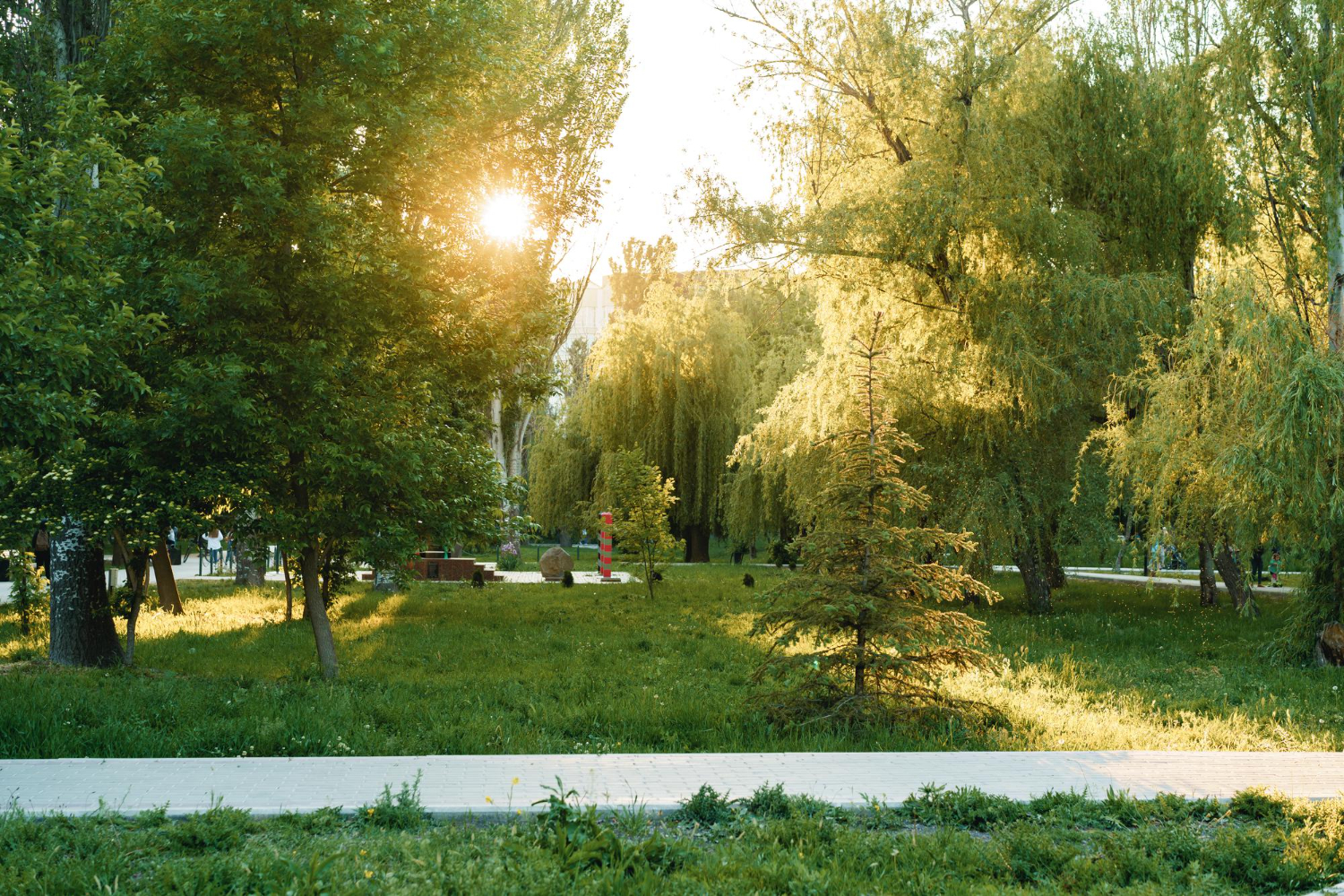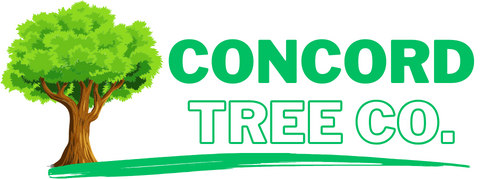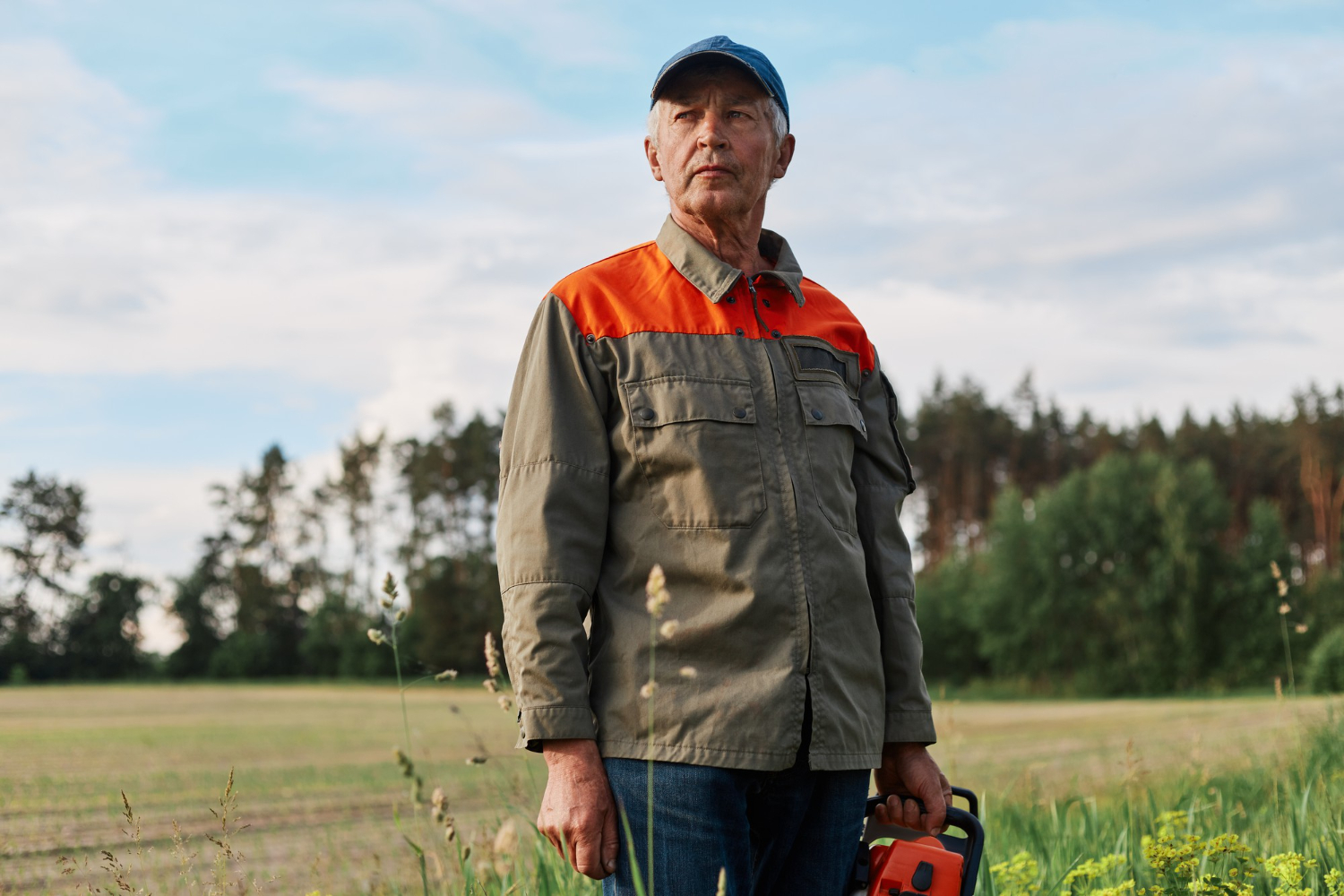In Concord, North Carolina, the responsibilities of property maintenance, including tree trimming, often fall under the purview of local regulations and lease agreements. As landlords, it is imperative that we understand our obligations in maintaining the safety and aesthetic of our properties. In particular, tree trimming can be a significant aspect of property upkeep because it impacts not only property appearance but also safety and neighborhood relations.
We must be cognizant of our legal responsibilities as well as any city ordinances that dictate maintenance roles. In Concord, whether a landlord is required to trim trees may depend on several factors, including the specifics of the lease agreement with the tenant and local municipal codes. Ensuring that we are informed about these factors is not only a matter of compliance but also one that pertains to liability and the well-being of our tenants.
Understanding the Local Ordinances Regarding Tree Trimming in Concord, North Carolina
In Concord, North Carolina, landlords have specific duties they must adhere to, particularly regarding property maintenance and compliance with local housing codes. We understand the importance of keeping rental properties in good repair to ensure the safety and satisfaction of tenants.
One of the primary responsibilities landlords have is to maintain common areas and the exterior of the property. This includes lawn care and tree trimming, to both preserve the property’s aesthetics and prevent potential hazards. For example, if a dead tree poses a risk of falling on the property, it is usually the landlord’s responsibility to have it removed or trimmed.
Landlords must also ensure that the property complies with all health and building codes that significantly affect health and safety. This requirement can directly relate to tree trimming if overgrown branches interfere with power lines or block visibility for pedestrians and traffic.
Regular inspections and maintenance are necessary to identify issues with trees on the property before they become a liability. It is advisable for landlords to document these efforts to show a proactive approach to property management, which can be useful in case any disputes arise.
We advise landlords to familiarize themselves with local ordinances, as some cities have specific regulations for tree maintenance. In such cases, landlords who fail to comply may be subject to fines or other penalties.
Here’s a quick breakdown of their responsibilities:
- Exterior Maintenance: Including lawn, trees, and shrubs.
- Code Compliance: Abiding by housing and health codes.
- Safety Measures: Addressing any condition that may be dangerous.
- Proactive Management: Regular inspections to avoid potential hazards.
Tree Trimming Regulations in Concord, NC
In Concord, North Carolina, the responsibility for tree trimming can depend on several factors, such as the location of the tree and local ordinances. We’ve summarized the key points below to provide clarity on the subject.
Ownership & Responsibility:
- Trees on private property: The owner is typically responsible for maintenance and trimming.
- Trees on public property: Handled by the city or designated municipal agencies.
Regulations to Consider:
- Permit Requirements: Before trimming a tree, homeowners should check if a permit is needed, especially for significant changes.
- Tree Protection Ordinances: Certain trees may be protected under local laws, and unauthorized trimming could lead to penalties.
- Utility Lines: Trimming near power lines should be managed by the utility company to ensure safety.
Helpful Resources:
- Local Government: The City of Concord’s website or office can provide specific information on tree-related ordinances.
- Utility Companies: Contact for concerns regarding trees near power lines.
- Professional Arborists: Licensed professionals can offer advice and services in compliance with local laws.
Our review of regulations in Concord shows that tree trimming responsibilities are generally straightforward, with homeowners managing trees on their property unless they fall under specific public interests or protections. It is crucial to stay informed on current regulations to ensure legal compliance and safety in any tree trimming activities.
Tenant’s Rights and Obligations Regarding Tree Trimming in Concord, North Carolina
In Concord, North Carolina, we as tenants have certain rights and obligations when it comes to maintaining the property we lease, which includes tree trimming. Our lease agreement often dictates specific responsibilities; however, some general guidelines apply.
Rights:
- Safe Environment: We have the right to a safe and habitable living environment as per the implied warranty of habitability. This can include the landlord’s duty to handle tree trimming if the condition of the trees poses a risk to our safety.
- Request Repairs: We can request the landlord to trim trees that might pose a hazard or interfere with our enjoyment of the property.
Obligations:
- Lease Agreement: We must adhere to the lease agreement, which may specify whether we or the landlord are responsible for tree trimming.
- Notify Landlord: If we notice potentially dangerous or decaying trees, we must promptly notify our landlord.
- Landscaping: Unless our lease says otherwise, we typically are not responsible for tree trimming. However, if we’ve agreed to handle landscaping, this responsibility may be ours.
| Aspect | Detail |
| Hazardous Trees | Landlord typically responsible unless lease states otherwise. |
| Trimming for Aesthetics | Landlord’s charge unless specified in the lease. |
| Trimming Beyond Boundaries | Requires professional service due to liability concerns. |
It is essential for us to review our individual lease agreements to understand our rights and obligations fully. We should also be aware of local ordinances that may weigh in on tree maintenance responsibilities. If in doubt, it is prudent for us to consult with the landlord or a legal professional.
Understanding the Lease Agreement in Concord, North Carolina Regarding Tree Trimming Responsibilities
When we enter a lease agreement in Concord, North Carolina, it is crucial to closely review the terms outlined in the document regarding the maintenance of the property. Specifically, for tree trimming, responsibilities can vary based on the lease agreement. Below, we will outline some common provisions that may appear in lease agreements.
Lease Provisions:
- Landlord Responsibilities: Often, the lease stipulates that the landlord is responsible for maintaining the property in a habitable condition, which may include tree trimming, especially if the trees pose a safety hazard.
- Tenant Responsibilities: In some cases, the lease may specify that the tenant is responsible for yard maintenance, including trimming of trees. This could be more common in single-family home rentals.
Key Elements to Look For:
- Specific Clauses: Look for clauses that mention landscaping, yard maintenance, or exterior upkeep.
- Safety Concerns: The agreement may specify who is responsible for addressing safety-related tree trimming.
- Common Areas vs. Private Areas: There may be different stipulations for trees in common areas as opposed to those in private areas if the rental is part of a multi-unit complex.
Document Review:
- Review your lease agreement carefully to understand what is expected of you.
- If tree trimming responsibilities are not clear, seek clarification from the landlord.
- In ambiguous situations, consider a written addendum to the lease specifying tree trimming duties.
By paying attention to these details in our lease agreement, we better understand our responsibilities concerning tree trimming and contribute to a positive landlord-tenant relationship.

Local Ordinances and State Laws: Tree Trimming Responsibilities in Concord, North Carolina
In Concord, North Carolina, the responsibility for tree trimming can fall on either the landlord or tenant, depending on the specific circumstances of the tenancy. It is important to consult the lease agreement as well as local and state laws for clarification.
State Laws:
- North Carolina General Statutes (NCGS) do not specify tree trimming obligations for landlords.
- Property Maintenance: Landlords are typically responsible for maintaining rental properties in a fit and habitable condition under NCGS § 42-42.
Local Ordinances:
- City Code of Concord: Addresses property maintenance standards. Landlords may be required to adhere to local codes, which could include tree trimming if it affects public safety or utility services.
Lease Specifics:
- Landlord-Tenant Agreements: The lease may explicitly assign the responsibility for tree trimming to the landlord or tenant.
- Common Areas: Landlords are usually liable for tree maintenance in common areas of a rental property.
Utility Services:
- Impact on utilities: Certain pruning responsibilities may fall on utility companies if trees interfere with power lines.
Neighbor’s Rights:
- If a tree from a landlord’s property poses a risk or infringes on a neighbor’s property, the landlord could be held accountable for trimming it.
When Landlords Are Liable for Tree Trimming in Concord, North Carolina
In Concord, North Carolina, we, as landlords, are generally responsible for maintaining the property in a safe and habitable condition. This duty often extends to the upkeep of trees on the property. Below are specific scenarios where our liability for tree trimming is clear-cut:
- Property Codes and Ordinances: Should the local ordinances or property codes in Concord dictate the maintenance of trees, we need to adhere strictly to these rules.
- Lease Agreement Terms: We must review the terms of our lease agreements. If it specifies that we are responsible for landscaping and tree maintenance, we are obligated to trim the trees when needed.
- Hazardous Conditions: If a tree poses a hazard to tenants, their guests, or adjacent properties—for instance, dead limbs that could fall—we must address the issue promptly to prevent potential harm.
- Common Areas: For multi-unit properties, we are typically responsible for maintaining common areas, including any trees. It’s important to regularly inspect and manage these trees to ensure they’re not a liability.
We need to stay proactive in tree maintenance to avoid negligence claims. Additionally, we should maintain a record of our inspections and any tree trimming completed, as this can serve as evidence of our due diligence regarding property upkeep.
Preventive Measures and Maintenance in Tree Trimming for Landlords in Concord, North Carolina
To manage properties effectively in Concord, North Carolina, we need to prioritize regular inspection and maintenance of trees. This ensures compliance with local regulations and contributes to the property’s overall safety and esthetic appeal.
- Inspection:
- Conduct biannual inspections to identify potential hazards.
- Monitor for diseases or pest infestations which can weaken trees.
- Pruning:
- Remove dead or weak limbs to maintain tree health and prevent damage.
- Trim branches that come close to power lines or buildings to mitigate safety risks.
- Documentation:
- Keep records of all maintenance and inspections.
- Document the condition of trees before and after significant weather events.
By adhering to these procedures, we uphold our responsibilities as landlords, maintain the safety of our tenants and property, and potentially avoid future disputes or liabilities.
Dispute Resolution and Legal Recourse for Tree Trimming in Concord, North Carolina
When disputes arise over tree trimming responsibilities in Concord, NC, tenants and landlords may need to explore various dispute resolution methods. We outline some primary steps and legal resources available to both parties.
- Communication: The initial step should involve clear communication between the tenant and the landlord. Documented discussions may resolve misunderstandings related to tree trimming obligations.
- Lease Review: Our lease agreement should be reviewed to ascertain if any clauses explicitly address tree trimming responsibilities. Often, lease agreements contain specific maintenance responsibilities that can clarify the situation.
- Mediation: If direct communication doesn’t lead to a solution, we may consider mediation. Professional mediators can facilitate a dialogue between us (the landlords) and our tenants to reach a mutually acceptable agreement.
- Local Housing Authority: For guidance on local housing codes and regulations, the Concord Housing Authority can provide us with relevant information. They can also mediate issues related to maintenance disputes.
- Legal Action: As a final recourse, we may pursue legal action. Small claims court is an option for us if the dispute involves a sum within the court’s limits. We should consult with an attorney experienced in landlord-tenant law for appropriate legal strategies.
- Tenant Rights Organizations: Tenants may seek assistance from organizations that advocate for tenant rights, which may offer additional resources or representation.
It’s imperative for both landlords and tenants to be aware of their rights and responsibilities. In the event of a disagreement, these steps can help us navigate the resolution process efficiently and fairly.
Frequently Asked Questions
Within this section, we address common inquiries regarding responsibilities for tree maintenance and liability issues in Concord, North Carolina. We focus on state-specific regulations that affect landlords and tenants.
Who holds the liability for damage caused by fallen trees in North Carolina?
In North Carolina, the person who owns the land where the tree stands typically holds liability for damage caused by that tree. If a tree falls and causes damage due to natural events, the landlord is usually responsible. However, if negligence towards the tree’s maintenance contributes to its fall, the landlord may be liable for any damages incurred.
What are the responsibilities of a landlord regarding tree maintenance in North Carolina?
Landlords in North Carolina are generally responsible for tree maintenance on the properties they rent out. This includes ensuring trees do not pose a hazard to tenants, their belongings, or the property. Routine inspections and maintenance must be performed to identify and address potential problems.
When is a tenant legally allowed to trim or cut down trees in North Carolina?
Tenants are legally allowed to trim or cut down trees in North Carolina only with the landlord’s explicit permission, unless it’s stipulated differently in the lease agreement. Tenants should always consult their lease and speak with their landlord before performing any alteration to the property’s landscape.
What are the tree trimming responsibilities in a North Carolina mobile home park?
In a North Carolina mobile home park, the park owner generally holds the responsibility for maintaining common areas, which includes tree trimming. Tenants are responsible for maintaining the area immediately surrounding their mobile home unless the lease specifies otherwise.
What actions are prohibited for landlords in relation to property maintenance in North Carolina?
Landlords in North Carolina are prohibited from neglecting property maintenance to the point where it endangers the health or safety of tenants. They must comply with all local housing codes and cannot ignore necessary repairs that impact the livability of a property.
What conditions are legally considered uninhabitable for tenants in North Carolina?
In North Carolina, conditions legally considered uninhabitable include serious issues that affect the tenant’s health and safety. Such conditions can be broken heating systems in winter, severe water leaks, lead paint hazards, and any situation where the structural integrity of the property is compromised.

